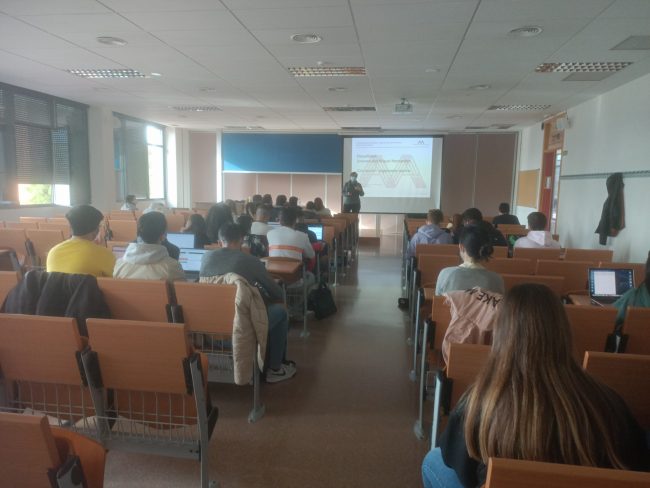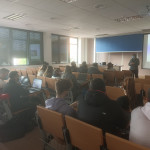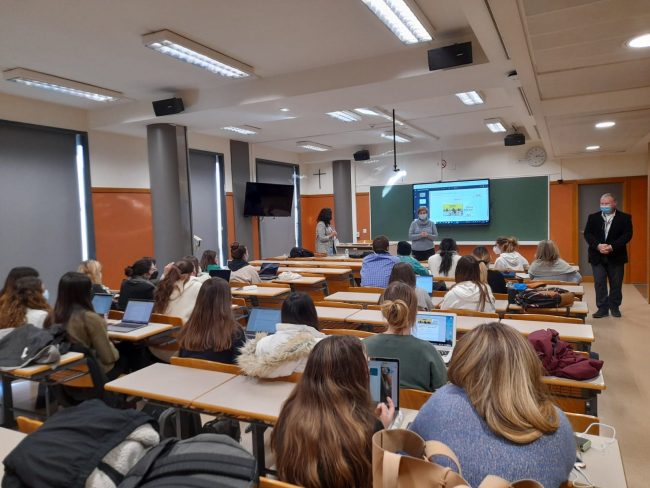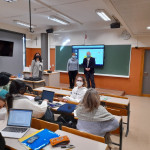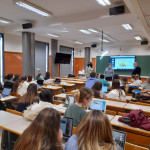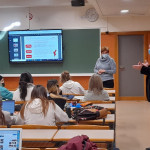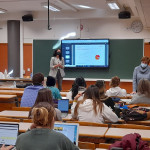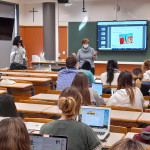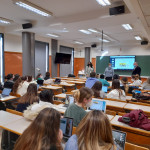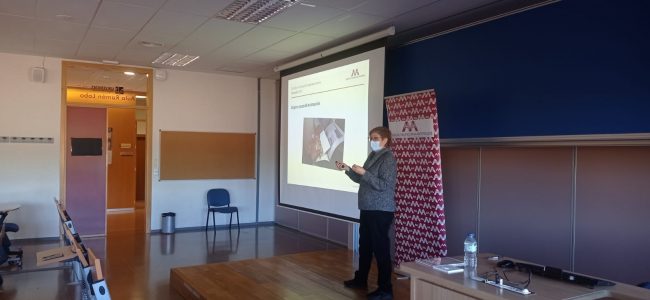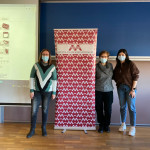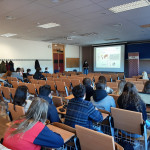#TrainingAVAF
In the first quarter of this academic year, two docufòrum have been held at the Miguel Hernández University of Elche, in collaboration with the Valencian Anti-Fraud Agency (AVAF). The activities have been carried out on December 3 and 16, 2021, both with second and fourth year students of the Degree in Journalism.
The AVAF develops training activities to offer knowledge and civic awareness, especially to future professionals, and to promote a culture of prevention and fight against all conduct that encourages corruption.
On Thursday, December 16, a new activity took place at the Faculty of Social and Legal Sciences of the Miguel Hernández University, with second-year Journalism degree students, with the attendance of 49 students and the participation of Professor Victoria Rodríguez.
After viewing the documentary “Corruption: Harmful Organism”, the students lead the training experience with their questions, focused on the origin and causes of corruption, its effect and costs, the perception of corruption in our society and respect to other neighboring countries, what to do in cases of corruption. In the same debate, he takes the opportunity to talk about ethics and integrity, as well as prevention and civic training. And the functions and work of the Valencian Anti-Fraud Agency, especially the importance of the media as a factor that modulates the perception of corruption, as well as the information on the different cases.
The debate with the students allows students to reflect on ethical limits and micro-corruption, which every professional encounters throughout their lives. The students were also interested in sanctions and institutional collaboration, especially with the Prosecutor’s Office.
These activities are organized in collaboration with the Miguel Hernández de Elche University, which we thank for its interest and willingness to help create a culture of public integrity and rejection of fraud and corruption.
If you are a university, Secondary or Baccalaureate teacher and you are interested in the training activity “Docufòrum: Corruption, harmful organism” being carried out in your subject, do not hesitate to contact the Training Service of the Valencian Anti-Fraud Agency through from formacion@antifraucv.es.


